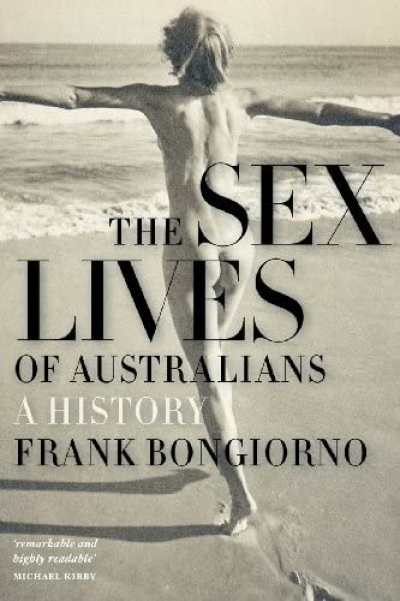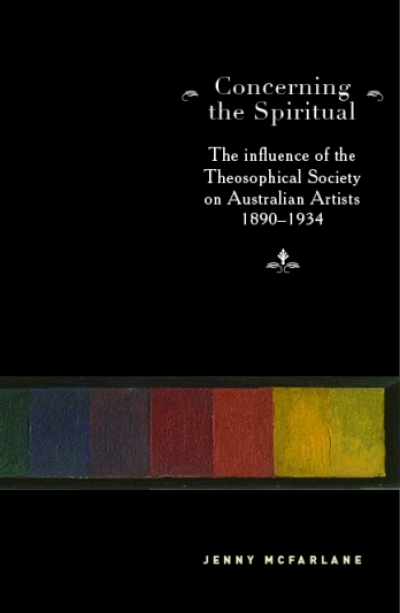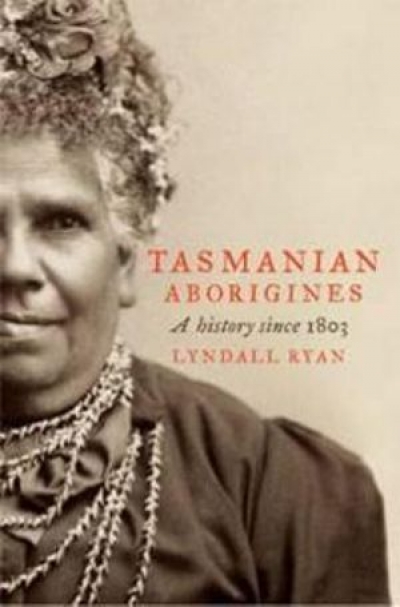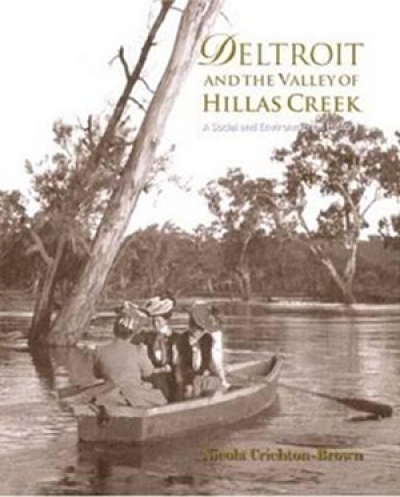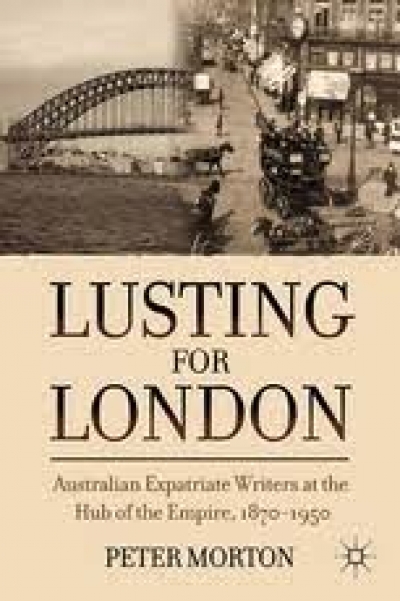Australian History
Bold Palates: Australia’s Gastronomic Heritage by Barbara Santich
That Barbara Santich has a vast knowledge and understanding of her subject is evident in every vivid and informative page of Bold Palates. The writer sets out to prove that, from the earliest colonial days, Australians improvised and adapted the available food, be it local or imported, familiar or new, and in so doing created the foundation for the distinctive Australian food culture we know today. A huge amount of research has been undertaken in the compilation of this book. It was clearly a productive and joyful task.
... (read more)All Our Relations: 18th Biennale of Sydney 2012 by Catherine de Zegher and Gerald McMaster
The eighteenth Biennale of Sydney was premised on the establishment of a new paradigm of conversation and collaboration between the two curators, participating artists, and the exhibition audience. Reacting against perceived disconnections between people and cultures in a modern era of individualism, the exhibition and accompanying catalogue proposed a new model for relating to one another and to the world we share, a model based on empathy and togetherness. Appropriately then, much of the work in the exhibition was aesthetically beautiful, particularly the installations at the Art Gallery of New South Wales. Gao Rong’s lifelike recreation in fabric of her grandparents’ modest home in northern China set the craft-oriented tone of the exhibition, each humble domestic item painstakingly embroidered by the artist. This poignant labour of love was not simply a novelty designed to catch viewers off guard (which it did), but a thought-provoking re-casting of the ordinary as extraordinary.
... (read more)The Sex Lives of Australians: A History by Frank Bongiorno
In 1984 Carole Vance edited an important book on female sexuality entitled Pleasure and Danger.Those terms could well have provided a subtitle for Frank Bongiorno’s thorough and engaging history of sex in Australia. ‘Sexuality,’ wrote Vance, ‘is simultaneously a domain of restriction, repression and danger, as well as a domain of exploration, pleasure and agency.’ To which she might have added a domain of increasing surveillance, another theme that runs through Bongiorno’s book. From fears of unwanted pregnancy and the dangers of botched abortion, to herpes and HIV, sex has always carried threats to health and safety. At the same time, it is an arena of pleasure, even though much religious and ideological pressure has been applied to restrict and constrain the possibilities that people might find in full expression of their sexual potential. Even in the comparatively liberated 1920s: ‘Public debate about sex in Australia stressed dangers and pitfalls and gave less attention to sex as a source of pleasure.’
... (read more)Fighting to the Finish: The Australian Army and the Vietnam War 1968–1975 by Ashley Ekins, with Ian McNeill
Fighting to the Finish does not get off to a good start; its title is overstated. The First Australian Task Force (1ATF), trimmed down in 1970 from three to two battalions, withdrew from the Vietnam War by December 1971. The small remaining advisory group withdrew in December 1972. Fighting finished in April 1975, when more than 180 battalions of the People’s Army of Vietnam (PAVN) swarmed around Saigon, causing it to fall. It hardly seems sensible to declare that the Australian Army fought to the finish over two years before the end of the war.
... (read more)Australian Art and Artists in London, 1950–1965: An Antipodean Summer by Simon Pierse
For a brief period, Australian art enjoyed unprecedented popularity in London, which became home to a large expatriate community of artists such as Sidney Nolan, Arthur and David Boyd, Charles Blackman, and Brett Whiteley. This ‘Antipodean Summer’ is vividly portrayed in Pierse’s critical account. He reveals that the success of these artists depended upon the support of a handful of art patrons, notably that of the art historian Kenneth Clark, the flamboyant young director of the Whitechapel Art Gallery Bryan Robertson, and the Australian expatriate art dealer Alannah Coleman. Nolan’s solo exhibition at the Redfern Gallery, Robertson’s ground-breaking Recent Australian Painting (1961), and Coleman’s Australian Painting and Sculpture in Europe Today (1963) were also crucial to the success of Australian artists. These exhibitions provided a counterpoint to the much-critiqued Tate Gallery survey exhibition, AustralianPainting: Colonial, Impressionist, Contemporary (1962–63).
... (read more)Dogs in Australian Art: A New History in Antipodean Creativity by Steven Miller
‘As cats are often associated with bookshops, dogs are similarly attracted to art galleries’, according to Steven Miller, head of the research library and archive of the Art Gallery of New South Wales, and author of Dogs in Australian Art: A New History in Antipodean Creativity. The beagle on the cover sits attentively, head slightly cocked, as if contemplating art. It is not until you turn the book over that you see what the dog is really looking at. David Welch’s wry painting sets the tone for this quirky and intriguing book.
... (read more)Concerning the Spiritual: The influence of the Theosophical Society on Australian Artists 1890–1934 by Jenny McFarlane
Jenny McFarlane, in this fascinating study of Theosophical influences upon Australian artists, attempts a ‘cross-cultural and interdisciplinary interrogation of modernity’. Rather than viewing modernism in the arts as the progression of a series of ‘isms’, leading by a linear narrative to abstraction, she presents a picture of multiple, interweaving modernisms. Her period of interest extends from the 1890s, when prominent Australians such as Alfred Deakin and Henry Parkes were enthralled by Annie Besant’s Australian lectures, through the early twentieth century, when many artists officially joined the Theosophical Society, to the Society’s decline after the death of C.W. Leadbeater in 1934. By focusing on the way Theosophy encouraged artists to probe the nature of the visible and invisible, McFarlane gives an account of Australian modernism that is ‘gendered, decentralised and alternative’.
... (read more)Tasmanian Aborigines: A History Since 1803 by Lyndall Ryan
One of the first things that Australians learn at school or on arrival as migrants is that this country has a rich history of war. Australia’s military tradition has been an integral part of the making of modern Australia. World War II opened doors to a wave of European migration and cultural enrichment, and each conflict since then has been followed by a similar surge of social development. Australia has grown up on war – or, at least, we have grown through it.
... (read more)Deltroit and the Valley of Hillas Creek: A Social and Environmental History by Nicola Crichton-Brown
Deltroit (pronounced del-troy) is an exceptionally fine pastoral property and homestead in the Riverina – ‘pastoral’ in the Australian sense, with drovers, not shepherds, and the furies of fire, flood, and drought never far from mind, notwithstanding a privileged life in magnificent surroundings:
... (read more)Lusting for London: Australian Expatriate Writers at the Hub of Empire, 1870–1950 by Peter Morton
Until recently, there was a prevailing attitude that to succeed as a professional author one had to go into exile. The small Australian market could not support a writing career; it was necessary to travel abroad and court a larger readership. Because Australia was a British colony, the obvious destination was London, heart of empire.
... (read more)

